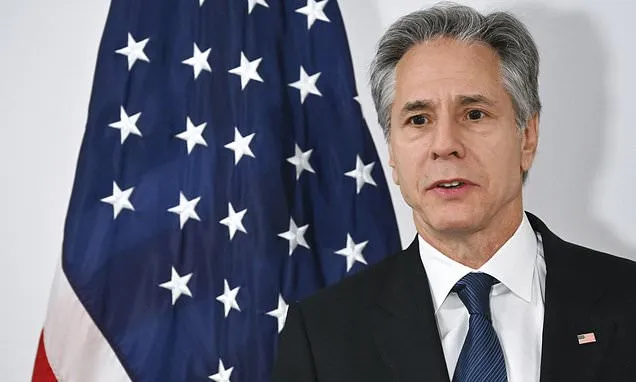WASHINGTON (AP) - When President Joe Biden visited Angola last week, one of the highlights was his pledge of hundreds of millions of dollars for an ambitious trans-Africa rail project that would bring copper and cobalt from central Africa to the Atlantic port of Lobito.
The project is possible because of the commitment of a $553 million direct loan from the U.S. International Development Finance Corporation, created in 2019 during the first Trump administration to counter China's expansion through infrastructure projects like the mega-port in Chancay, Peru.
On Monday, the U.S. agency celebrated its five-year milestone by vowing to advance U.S. foreign policy and strategic interests through projects around the world such as the one in Angola. It also seeks re-authorization from Congress and a greater ability to invest in more countries when there's a strategic need to compete with China.
"We need to be good partners while offering an alternative based on our values," said Scott Nathan, the chief executive officer of the development agency, who was in Angola last week with the president. "Quite simply, we need to continue to show up."
Nathan is set to leave the post. President-elect Donald Trump is yet to name his pick to lead the agency.
Over its first five years, the agency has developed a portfolio of more than $50 billion in 114 countries, including solar panel manufacturing in India, a power plant in Sierra Leone, and digital infrastructure in South America. To do that, it has leveraged government funding to partner with private investments. Last year alone saw commitments totaling $12 billion using roughly $800 million in appropriations.
"Investments by the agency are having a 'transformational impact on economic development while concretely advancing U.S. strategic interests,'" Nathan said.
In Angola, for example, the rail project would help secure supply chains by cutting both time and cost in transporting critical minerals.
National security adviser Jake Sullivan noted that "the agency was created when the U.S. was 'ceding' ground" amid new geopolitical realities requiring vision calibrated towards transformational challenges.
It was back in 2013 when Beijing launched its massive Belt and Road Initiative aimed at gaining markets and influence globally through building infrastructure usually concentrated within less-developed regions.
A recent report highlighted how China provided $679 billion for international infrastructure compared with only $76 billion provided by America between 2013-2021; Western politicians criticize these efforts as debt traps though Beijing argues they deliver tangible benefits economically needed across host nations worldwide.
